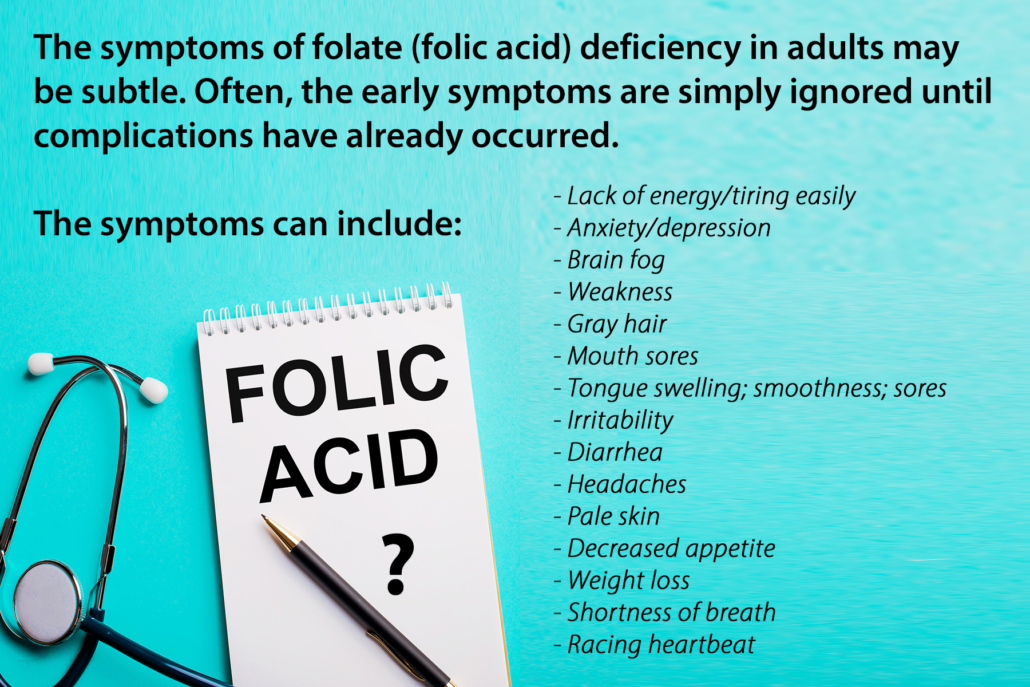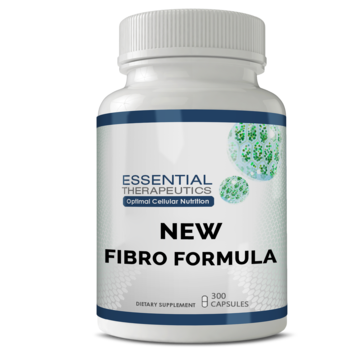Are Your Vitamins Causing Pain, Fatigue, Or Other Unwanted Symptoms?
You may be surprised to know that for some the answer is yes!
 Have you heard about Methylenetetrahydrofolate reductase ( MTHFR)?
Have you heard about Methylenetetrahydrofolate reductase ( MTHFR)?
If not you may be taking vitamins that are poorly absorbed and may make your symptoms worse.
The MTHFR gene helps the body convert folic acid into its active form, L-methyl-folate. Methyl folate plays an important far reaching role in your overall health; supporting detoxification, hormone balance, neurotransmitter production, and metabolism.
This gene is also responsible for helping the body break down a potentially toxic amino acid called homocysteine. When you have the MTHFR gene mutation, your body is unable to properly break down homocysteine, which can lead to high blood pressure, an increased risk of stroke, heart attack, and problems with the eyes, joints, and poor mental clarity.
The MTHFR gene provides instructions for making an enzyme called methylenetetrahydrofolate reductase. This enzyme plays a role in processing amino acids, the building blocks of proteins. You may remember an earlier blog where I wrote about the importance of amino acids and why they are included the Essential Therapeutics Fibro Formula. hyperlink
Amino acids are the building blocks of life.
A block or reduction in the MTHFR can lead to amino acid defeciencies, and cause brain fog, low energy, anxiety, depression, chronic pain, digestive disorders, detox disorders, chemical sensitivity, poor sleep, nerve damage, and more.
What You Should Know About Methylenetetrahydrofolate reductase ( MTHFR) And Fibromyalgia

We have over 20 thousand genes in our body. And over ten million genetic polymorphisms or single-nucleotide polymorphisms (SNPs).
MTHFR is important for a chemical reaction involving the vitamin folate (also called vitamin B9 or folic acid).
Folic acid is an important nutrient that has multiple functions in the body. It plays a role in the synthesis of DNA and RNA, and is also involved in homocysteine and vitamin B12 metabolism and in the functioning of the central nervous system and immune system.
Folic acid supplementation has been shown to be effective for preventing or treating neural tube defects, strokes, migraines, restless legs syndrome, osteoporosis, anxiety, depression psoriasis, gingivitis, cervical dysplasia, and other unwanted health conditions.
Although folic acid is widely used as a supplement, recent research has identified that up to 50% of the population may not be able to convert folic acid—the synthetic form of B9—into absorbable folate (5-methyltetrahydrofolate).
Worse those with MTHFR issues may experience unwanted symptoms from ingesting folic acid that doesn’t convert into 5-methyltetrahydrofolate.
This is the reason the Essential Therapeutics Fibro Formula contains this special form of methylated folic acid.
There are two common naturally occurring variants in the MTHFR gene, called C677T and A1298C.
When the MTHFR gene has either of these two variants, the resulting MTHFR enzyme is slightly less active, and this can lead to decreased levels of folate (folic acid) and increased levels of homocysteine in the blood. Either of these two outcomes can contribute to poor health.

L-Methylfolate, used in Fibro Formula, is the only form of folic acid that crosses the blood-brain barrier and plays a role in neurotransmitter synthesis. It indirectly facilitates the synthesis of serotonin, dopamine, and norepinephrine, three neurotransmitters needed to reduce anxiety, depression, chronic pain, poor sleep, fatigue, brain fog, irritable bowel, and other symptoms associated with fibromyalgia.
Proper Methylation is also needed for the production of CoQ10 and carnitine, two important chemicals for energy. CoQ10 is the spark plug of each cell. A deficiency can cause fatigue, muscle cramps, pain, nerve damage, brain fog, and more.
Perhaps the greatest problem with a methylation-cycle block is that neither the immune system nor the detox system can operate properly. If the methylation cycle remains blocked for an extended period of time, infections and toxins can be expected to build up in the body. These toxins and or infections can cause numerous unwanted symptoms including chronic pain, fatigue, brain fog, IBS, mood disorders, chemical sensitivities, food allergies, and more.
Factors that Affect Your Methylation Process
- Genetics: Like an estimated 20 percent of us, you could be genetically predisposed to high homocysteine levels, which affect your methylation process.
- Poor diet: B vitamins come from eating leafy greens, beans, fruit, and whole grains to get adequate levels of vitamins B 6 and B 12, betaine, and folate. Egg yolks, meat, liver, and oily fish are the main dietary sources of vitamin B 12, so long-term vegan diets can also be a problem. Plus, certain compounds can raise levels of homocysteine and deplete the B vitamins: excess animal protein, sugar, saturated fat, coffee, junk food, and alcohol.
- Smoking depletes vitamin B 6.
- Decreased stomach acid: Aging and other conditions can reduce stomach acid, and therefore absorption of vitamin B 12.
- Malabsorption: Conditions like digestive diseases, food allergies, and even aging can reduce absorption of nutrients.
- Other conditions: These include hypothyroidism, kidney failure, having only one kidney, cancer, and pregnancy.
- Medications: Drugs like acid blockers, methotrexate (for cancer and arthritis and other autoimmune diseases), oral contraceptives, HCTZ (for high blood pressure), and Dilantin (for seizures) can all affect levels of B vitamins.
Measuring Your Own Methylation Process

To find out if your methylation process is optimal, ask your doctor for the following tests:
- Complete blood count: Red blood cells with a mean corpuscular volume (MCV) greater than ninety-five can signal a methylation problem.
- Homocysteine: The normal level is less than thirteen, but the ideal level is likely between six and eight.
- Serum or urinary methylmalonic acid: This is a more specific test for vitamin B 12 insufficiency. Your levels may be elevated even if you have a normal serum B 12 or homocysteine level.
- Plasma blood test: Along with the above, I use this test from Doctor’s Data that measures six primary indicators of methionine metabolism.
Most over the counter supplements are made with the synthetic version of folate, folic acid. Research is now confirming that a growing number of people aren’t able to convert this form into the 5-methyltetrahydrofolate (5-MTHF).
If you have an issue with poor methylation then converting synthetic folic acid into the active L-methylfolate can sabotaged.
I recommend when taking a multivitamin you find one with the L-methylfolate form of folate.
My patients use the Essential Therapeutics Fibro Formula with L-methylfolate. The L-methylfolate form does not require the MTHFR enzyme to create functional folate to be used in homocysteine metabolism and other essential bodily processes.
Even people with normal MTHFR genetic status have been shown to respond better to the L-methylfolate form compared with conventional synthetic folic acid.






Dr Murphree,
One of my patients referred me to this article. I read it. What you know or don’t know about nutrition aside, this kind of article that generalizes numerous injuries that can happen if someone does or doesn’t have some chemical with a long name is irresponsible. If you think you have beneficial information that translates into telling people what to consume and then selling it without even knowing the person you are selling it too is irresponsible. Provide.your information to other doctors in a form that allows for discussion between professionals.
Hi Dr. Forcade,
Obviously the article about MTHFR is not intended for physicians. But the article is valid!
I’m not sure what you have an issue with? If it’s to do with MTHFR the information is supported by numerous studies.
https://mthfr.net/ Is one of many resources.
https://yourfibrodoctor.com/2014/01/fibromyalgia-chronic-fatigue-syndrome-methylation-cycle-block/
I’ve witnessed numerous patients who couldn’t tolerate folic acid, cyanocobalamin or pyridoxine.
It baffled me, until I learned about methylation issues and started testing for them recommending the methylated form of theses vitamins.
Rodger Murphree